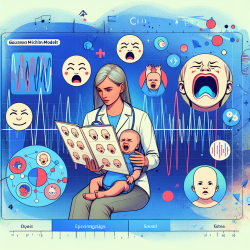Understanding Anti-LGI1 Limbic Encephalitis
Anti-Leucine-Rich Glioma-Inactivated Protein 1 (Anti-LGI1) Limbic Encephalitis is a rare autoimmune neurological disorder that affects the limbic system of the brain. This condition, characterized by the presence of antibodies against LGI1, leads to significant changes in cognition, memory, and behavior. While it was only recognized as a disease in 2010, it is the second most common cause of autoimmune encephalitis.
Clinical Presentation and Diagnosis
Anti-LGI1 limbic encephalitis typically presents with a tetrad of symptoms: cognitive disturbances, faciobrachial dystonic seizures (FBDS), psychiatric changes, and hyponatremia. A recent case study highlighted an elderly female who presented with new-onset panic attacks and rhythmic facial movements. Upon further investigation, she was diagnosed with anti-LGI1 limbic encephalitis through serum and cerebrospinal fluid (CSF) testing.
Diagnosis involves a combination of serum labs, CSF studies, electroencephalogram (EEG), and brain imaging. Antibody testing is crucial, with serum testing being more sensitive than CSF. EEG abnormalities and MRI findings can also aid in diagnosis, although brain imaging may sometimes appear normal.
Implications for Speech-Language Pathologists
As practitioners, it is vital to recognize the symptoms of anti-LGI1 limbic encephalitis early. The cognitive and psychiatric changes associated with this condition can significantly impact speech and language functions. Understanding the underlying neurological processes can aid in developing targeted therapeutic interventions.
Speech-language pathologists should be aware of the potential for memory deficits and cognitive impairments in patients with this condition. Early intervention and collaboration with neurologists can lead to more favorable outcomes for patients.
Treatment and Prognosis
Prompt treatment with immunotherapy, including steroids and intravenous immunoglobulin (IVIG), can lead to significant improvements. In the highlighted case, the patient experienced remarkable recovery within 12 hours of treatment initiation. However, long-term cognitive complications can persist, underscoring the importance of early diagnosis and intervention.
While the prognosis for anti-LGI1 limbic encephalitis is generally good, ongoing management and monitoring are essential. Speech-language pathologists can play a critical role in the rehabilitation process, helping patients regain cognitive and communicative functions.
Encouraging Further Research
Given the underdiagnosis of anti-LGI1 limbic encephalitis, further research is needed to better understand its pathophysiology and treatment options. Speech-language pathologists are encouraged to stay informed about the latest developments in autoimmune neurological disorders and to contribute to research efforts.
To read the original research paper, please follow this link: A Case of Anti-Leucine-Rich Glioma-Inactivated Protein 1 (Anti-LGI1) Limbic Encephalitis With New-Onset Panic Attacks.










